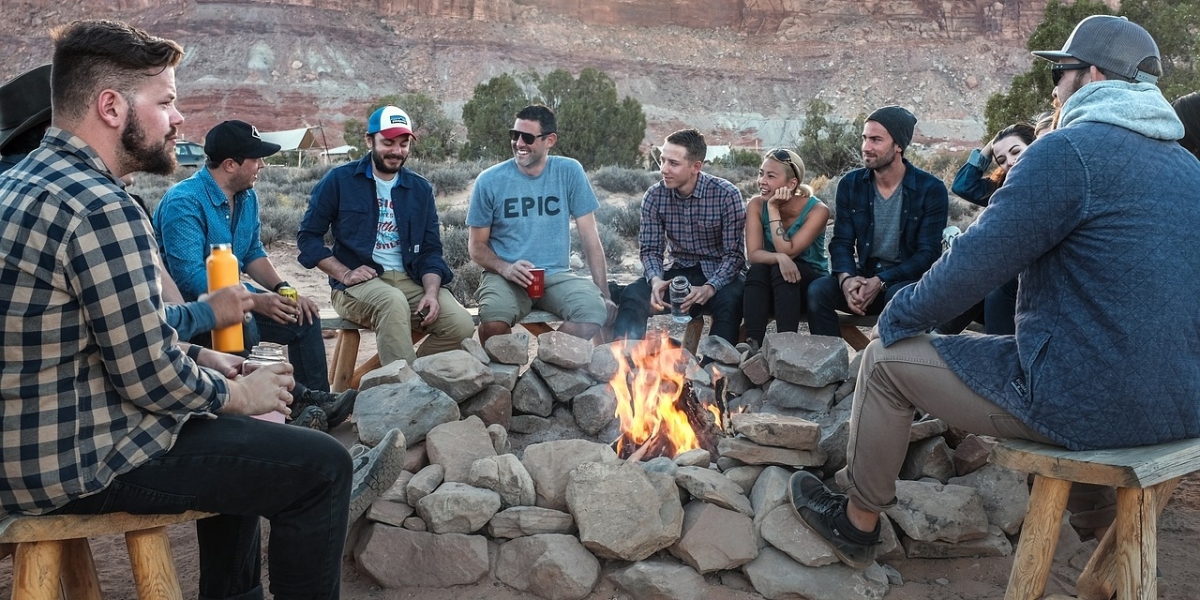7 Things You Should Never Do While Camping: A Survival Guide for Outdoor Enthusiasts
Camping is one of the most enjoyable outdoor activities you can do, offering a chance to escape from the hustle and bustle of daily life and reconnect with nature. However, there are a few key mistakes that can turn your outdoor adventure into a stressful or unsafe experience. Whether you're a first-time solo camper or a seasoned adventurer, here are seven essential things you should never do when camping to ensure a safe, enjoyable, and comfortable experience.
1. Set Up Camp in the Dark
While camping is all about embracing nature, setting up your campsite at night is never a good idea. Even the best-maintained campsites can have hidden hazards like rocks, sticks, or uneven ground that can lead to accidents in the dark. The last thing you want is to trip over a root while setting up your tent. Always try to arrive at your campsite early enough to assess the area and make sure it's clear of debris. If you must camp at night, use car headlights and lanterns to light the area, and take your time to clear the space before pitching your tent.
2. Go for a Walk Alone in the Forest
While solo hiking can be a rewarding experience, doing so in unfamiliar territory without telling anyone your plans can be risky. If you're camping alone, always inform someone of your route and expected return time. It's a good idea to carry a GPS or map and let others know when you're heading out on a hike. Avoid venturing too far from the campsite on your own, especially in remote or dense forested areas, as you never know what wildlife or sudden weather conditions you might encounter.
3. Leave Food Out in the Open
Wildlife is one of the biggest challenges for campers. Bears, raccoons, squirrels, and other animals are always on the lookout for an easy meal, and leaving food unattended can attract unwanted guests to your campsite. Never store food in your tent, as it can draw animals inside. Instead, use bear-proof containers or lock your cooler in your car. Make sure to clean up any crumbs and scraps after cooking, and check the local guidelines to see if special precautions are necessary for food storage in your area.
4. Forget to Pack Warm Clothes
One of the most common camping mistakes is overlooking the fact that nights in the wilderness can get cold, even during the summer months. Unexpected weather changes like rainstorms or chilly winds are not uncommon. Be prepared for varying temperatures by packing layers, including warm clothes, long pants, and jackets. This is especially important if you're camping in mountainous or desert regions, where temperatures can drop significantly after dark.
5. Annoy Your Neighbors
Camping is often a communal activity, and maintaining good relations with fellow campers is essential. Be mindful of noise levels, especially at night. Playing loud music, yelling, or driving too fast within the campground can disturb others and lead to tension. If you unintentionally disturb your neighbors, a simple apology (and perhaps a batch of freshly baked camp cookies) can go a long way. Remember, respect and consideration for others’ experience will make your own camping trip much more enjoyable.
6. Bring Equipment You Don't Know How to Use
Camping gear can be tricky to master if you're not familiar with how it works. Whether it's your new tent, stove, or camp kitchen, take the time to familiarize yourself with your equipment before your trip. Set up your tent at home before leaving to ensure you understand how it goes together. Practice using your camp stove and learn how to safely operate your gear. This way, you won’t waste time fumbling with equipment when you’re trying to enjoy your camping experience.
7. Forget the Toilet Paper
Even if your campsite has bathrooms, always pack your own toilet paper. You never know when supplies may run out, especially if you’re camping in remote areas where facilities may not be well-stocked. A backup roll of toilet paper can save you from an inconvenient situation and ensure you're prepared for any restroom emergency, whether you're at the campsite or out on a hike.
Packing Tips for a Comfortable Camping Trip
Preparation is key to a successful camping experience. Here's a quick checklist to ensure you pack everything you need:
- Water: Always bring enough water for drinking, cooking, and cleaning. Consider investing in a portable water filter if you're camping near a lake or stream.
- Cooking Equipment: Whether you're grilling burgers or cooking a gourmet meal, make sure you bring a stove, fuel, pots, pans, and utensils.
- Food Storage: Pack perishables in coolers with ice, and store dry goods like pasta, grains, and spices in airtight containers.
- Shelter and Sleeping Gear: Make sure your tent is in good condition and bring sleeping bags and pads suitable for the weather conditions.
- Clothing: Don’t forget extra layers, especially if you’re camping in cooler climates or during unpredictable weather.
- First Aid Kit: Always carry a basic first aid kit with you, including bandages, antiseptic, and any personal medications.
General Camping Safety Tips
In addition to proper packing, be sure to follow campsite rules and stay aware of any safety protocols:
- Wildlife Safety: Keep food secured, and never feed animals. Store your food in designated bins or vehicles to deter wildlife.
- Respect Others: Keep noise levels low, especially at night, and be considerate of fellow campers.
- Fire Safety: If you're allowed to have a campfire, make sure it's fully extinguished before leaving the campsite. Never leave a fire unattended.
- Child Safety: If camping with kids, closely supervise them, especially around water or near wildlife areas.




